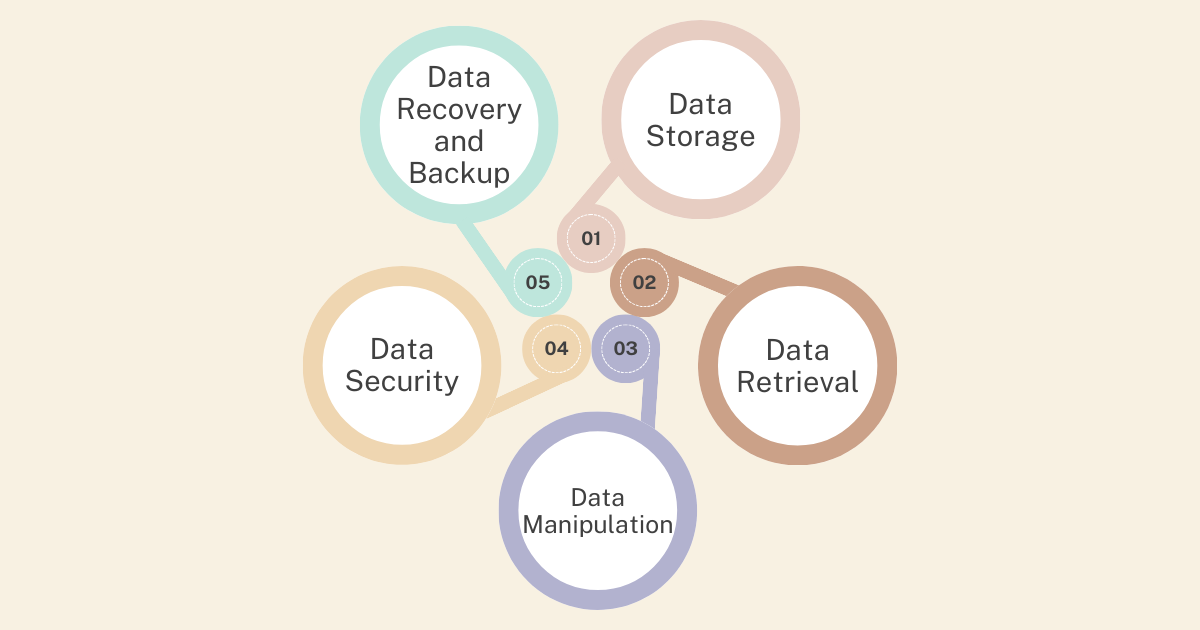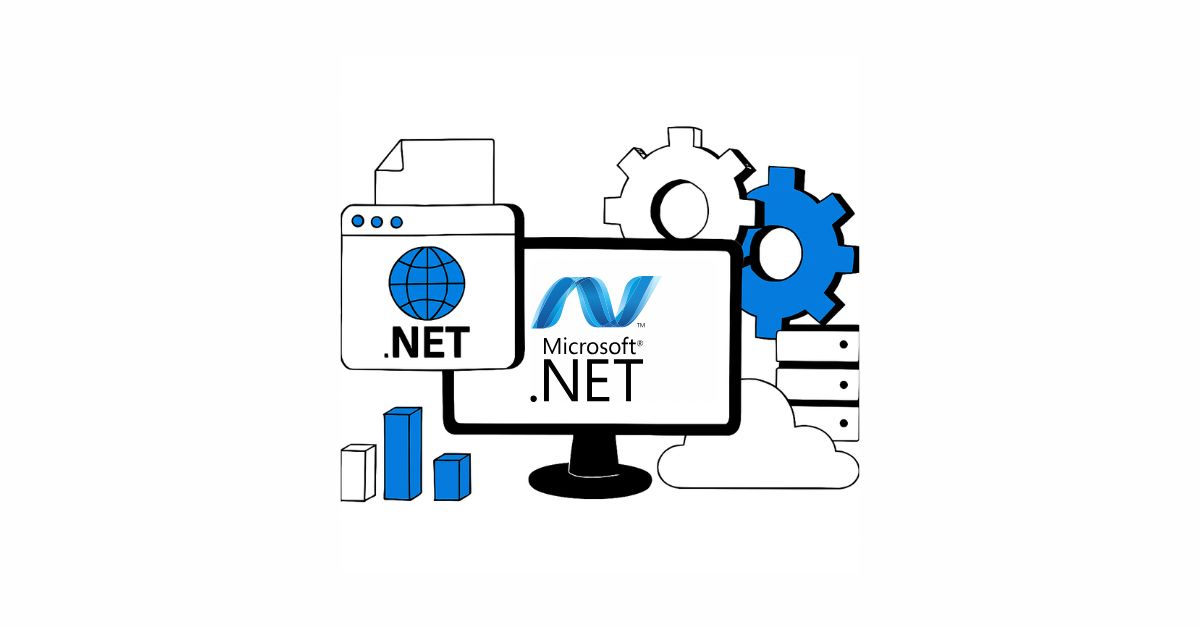Is the tremendous amount of data at your disposal overwhelming you and making it difficult for you to make sense of it all? Do not fear! To save you from the depths of uncertainty and inefficiency, data management services are available. These days, with everything being digitized, information is king. Keeping ahead of the curve requires utilizing the power of a renowned data management company. Allow us to explore and thoroughly understand the numerous advantages of utilizing data management.
- What is Data Management?
- Importance of Data Management
- The Top 5 Database Management Functions
1. Data Storage
2. Data Retrieval
3. Data Manipulation
4. Data Security
5. Data Recovery and Backup - Best Data Management Examples
– CRM
– Inventory Management Systems
– HRIS
– Financial Management Systems
– Systems for Managing Supply Chains - Top 20 Advantages of Data Management Services
- End Note on Data Management
- FAQS
What is Data Management?
In order to handle data inside an organization efficiently, a variety of tasks are included in what is data management. Data management include guaranteeing the quality, security, and accessibility of data in addition to storing and managing it. To understand what is data management – Rough data is first gathered from multiple sources to begin data management service. Databases or other storage systems are then used to store it. The data is stored, then conveniently retrieved and analyzed thanks to its organization and structure by a data management company.
Maintaining the accuracy and consistency of the data is another aspect of data management, in addition to its storage and organization. Data validation and cleansing procedures are included to find and fix mistakes or discrepancies. Measures like encryption and access restrictions that shield data from loss, corruption, and unwanted access are all part of data management services.
Importance of Data Management
Businesses require efficient data handling. Almost all facets of operations are supported by data management. Enterprises may enhance their decision-making capabilities, optimize productivity, and minimize hazards. Data management do it by upholding well-organized and precise data.
Retaining information in a manner that facilitates access and analysis is the goal of data management software. Data management provide groups with the ability to generate innovative ideas and glean important information. Adhering to regulatory regulations is another importance of data management. Data management service ward off breaches and unwanted access to critical information.
Businesses can also optimize their resources and processes with the help of data management. Saving money and achieving better results are the importance of data management. Businesses are able to recognize patterns, predict client demands, and react fast to market shifts when they have well-managed the data.
The Top 5 Database Management Functions

In contemporary enterprises, data management software is essential. For the purpose of managing, organizing, and storing enormous volumes of data, data management services offer an organized framework. Databases are the foundation of everything from keeping track of inventory to maintaining customer data. We will examine the core database management functions and the reasons that businesses require them.
1. Data Storage
Data management effectively stores a lot of data. It arranges it into rows, tables, and columns.
2. Data Retrieval
By employing queries, users can quickly obtain particular data. Data management service make relevant information quickly accessible.
3. Data Manipulation
Users can add, edit, or remove data using database management systems (DBMS). Database management functions guarantees the accuracy and currency of the database.
4. Data Security
Data management service employ security features including encryption, authorization, and authentication. Its goal is to prevent breaches or unwanted access to sensitive data.
5. Data Recovery and Backup
Data management service offer tools for routinely backing up data. In the case that the system fails, it recovers it. Data management software guarantees the continuation and integrity of the data.
Best Data Management Examples
A company’s ability to make educated decisions, optimize workflows, and adhere to regulations is contingent upon its ability to handle data effectively. Data management services include customer information and financial records. We shall examine several data management examples of the use of data management and their role in the prosperity of companies in diverse sectors.
CRM
Data management providers, or customer relationship management, are designed to store and handle customer data. Purchase history, contact information, and interactions are all included. The purpose of data management is to make relationship-building and efficient customer communication easier.
Inventory Management Systems
Real-time tracking of stock movements, orders, and inventory levels is possible using an inventory management system. In addition to reducing stockouts and overstock scenarios, data management service guarantee the effective administration of commodities.
HRIS
Systems for Information about Human Resources (HRIS) Payroll information, performance reviews, training records, and personal data about employees are all managed by HRIS. Data management service expedites compliance with HR regulations and streamline.
Financial Management Systems
Budgets, financial reporting, and transactional data are handled via financial management systems. Data management services facilitate decision-making by stakeholders and offer insights into the organization’s financial health.
Systems for Managing Supply Chains
Seeking reliable Data Management Services?
Contact GrapesTech Solutions for scalable solutions ensuring data quality, security, and accessibility.
These systems keep an eye on the movement of products, data, and funds. Processes including production, distribution, logistics, and procurement are all optimized by data management.
Top 20 Advantages of Data Management Services
- Effective Data Scheduling: Structured data organization is facilitated by data management service. Accessing and analyzing it becomes simple.
- Improved Decision-Making: data management service provide quick and accurate information. Data management providers help businesses make more informed decisions.
- Improved Data Security: Sturdy security measures are put in place by data management providers. Data management serves as a safeguard against breaches or illegal access to private data.
- Streamlined Operations: Businesses can do this by streamlining their processes and maintaining well-organized data. Data management services increase output while lowering manual mistake rates.
- Scalability: Scalability is a feature of data management. When companies expand, it enables them to adjust to their evolving data requirements.
- Cost Savings: Companies can cut expenses by outsourcing data administration and avoid paying for staff and infrastructure maintenance internally.
- Compliance: Data management services make sure companies follow all applicable laws and guidelines. Data management providers lower the possibility of fines or legal problems.
- Data Backup and Recovery: Data management reduces the chance of data loss. It is due to hardware malfunctions or other unanticipated occurrences. Data management providers do it by implementing frequent backups and disaster recovery strategies.
- Cooperation: By giving team members the means to safely share and access data, data management services promote cooperation.
- Competitive Advantage: Businesses can obtain a market advantage by using data management providers to discover trends and opportunities before their rivals.
- Better Data Quality: Data management services guarantee the correctness, consistency, and completeness of data. Higher quality ideas and decisions are the result of it.
- Real-time Data Access: Businesses can get real-time data updates and insights by using data management. Rapid adaptation to dynamic market situations is made possible by it.
- Customized Consumer Experiences: Companies may tailor their marketing campaigns and consumer interactions by handling customer data efficiently. Better client happiness and loyalty are the results.
- Enhanced Resource Allocation: By detecting inefficiencies or waste, data management assists companies in making more effective use of their resources. It transfers funds to locations that yield more profits.
- Predictive Analysis: Businesses can use predictive analytics models by utilizing data management. By utilizing past data, it predicts future patterns and actions. It is helpful to foresee changes in the market and adjust plans appropriately.
- Regulatory Compliance: Data management services make sure companies abide by laws about data protection, like GDPR and HIPAA. It lessens the possibility of facing fines or penalties from regulations.
- Cross-Departmental Collaboration: Within a company, many departments can readily cooperate and exchange information thanks to centralized data management systems. It creates a more harmonious and productive workplace.
- Improved Customer Insights: Businesses can learn more about the requirements, preferences, and behavior of their customers by examining customer data. It makes it possible to launch customized marketing campaigns and enhance products and services.
- Risk management: By offering insights into possible dangers or weaknesses, data management services assist firms in identifying and reducing risks. Proactive risk management tactics are made possible by it.
- Company Continuity: Data management services guarantee company continuity in the case of a disaster or system breakdown by facilitating quick data recovery and minimizing downtime. It prevents significant disruptions to operations.
Read Further: How Data Science Transforms the Business Landscape
End Note on Data Management
In the current digital era, data management is essential to an organization’s ability to succeed and remain sustainable. Businesses can get insightful knowledge by efficiently gathering, storing, organizing, and evaluating data. It has the potential to simplify processes, boost customer satisfaction, and improve decision-making.
One cannot stress the significance of data management, be it for customer relationship management, supply chain optimization, or guaranteeing data security and compliance. It will be essential to invest in strong data management strategies and systems as technology develops more and data quantities rise rapidly. In the increasingly cutthroat and data-driven industry, enterprises need to prosper.
Frequently Asked Questions (FAQs)
The procedures and tools used to gather, store, arrange, and evaluate data are the components of data management systems. Decision-making can be influenced by it and valuable insights can be extracted.
Business operations must be streamlined, which requires effective data management. Gaining a competitive edge in the market, a data management company improves data security and decision-making.
Data warehouses, database management systems, and customer relationship management platforms are a few data management examples of a data management company offerings.
Access restrictions, encryption, frequent backups, and disaster recovery plans are just a few of the ways data management systems improve security. A data management company guarantees the security of data against loss or unwanted access.
Yes, data management can be customized to fit your specific business requirements. A data management company provides scalability and flexibility. It is to adapt to changing needs and market demands.







